Top 10 Health Benefits of Ginger
The first record of ginger usage goes back to 500 BC. Although ginger is a Southeast Asian plant, it is the root that gives the spices used in cooking. While ... read more...ginger provides taste to food, it has also been used as an alternative medicine throughout history. Continue reading to learn about ginger's top health benefits below!
-
Ginger, which comes from a flowering root plant, has a wide range of health benefits. The spice was initially discovered in Southeast Asia and has been utilized in Eastern medicine since the 9th century, as well as being a staple of Asian, Indian, and Caribbean cuisines.
Ginger has a long history of use in forms of traditional and alternative medicine. To name a few of its benefits, it's been used to aid digestion, relieve nausea, and combat the flu and common cold. Ginger gets its unique color and taste from its natural oils, the most important of which is gingerol. The major bioactive compound in ginger is gingerol. It's responsible for a lot of the therapeutic benefits of ginger. According to studies, gingerol has potent anti-inflammatory and antioxidant properties. It may, for example, help in the reduction of oxidative stress, which is caused by an excess of free radicals in the body.

Contains gingerol, which has powerful medicinal properties 
Contains gingerol, which has powerful medicinal properties -
Ginger appears to be a powerful anti-nausea treatment. It may help those who are having certain types of surgery with nausea and vomiting. Ginger may also help with nausea caused by chemotherapy, although further human researchs are needed.
It may be the most helpful for nausea caused by pregnancy, such as morning sickness. A study of 12 research with a total of 1,278 pregnant women found that 1.1–1.5 grams of ginger can considerably improve nausea symptoms. However, this study found that ginger had no effect on vomiting episodes. Although ginger is safe, if you're pregnant, consult your doctor before taking high doses. Ginger is not suggested for pregnant women who are approaching labor or have suffered miscarriages. Ginger is also not recommended if you have a history of vaginal bleeding or clotting problems.

Can treat many forms of nausea, especially morning sickness 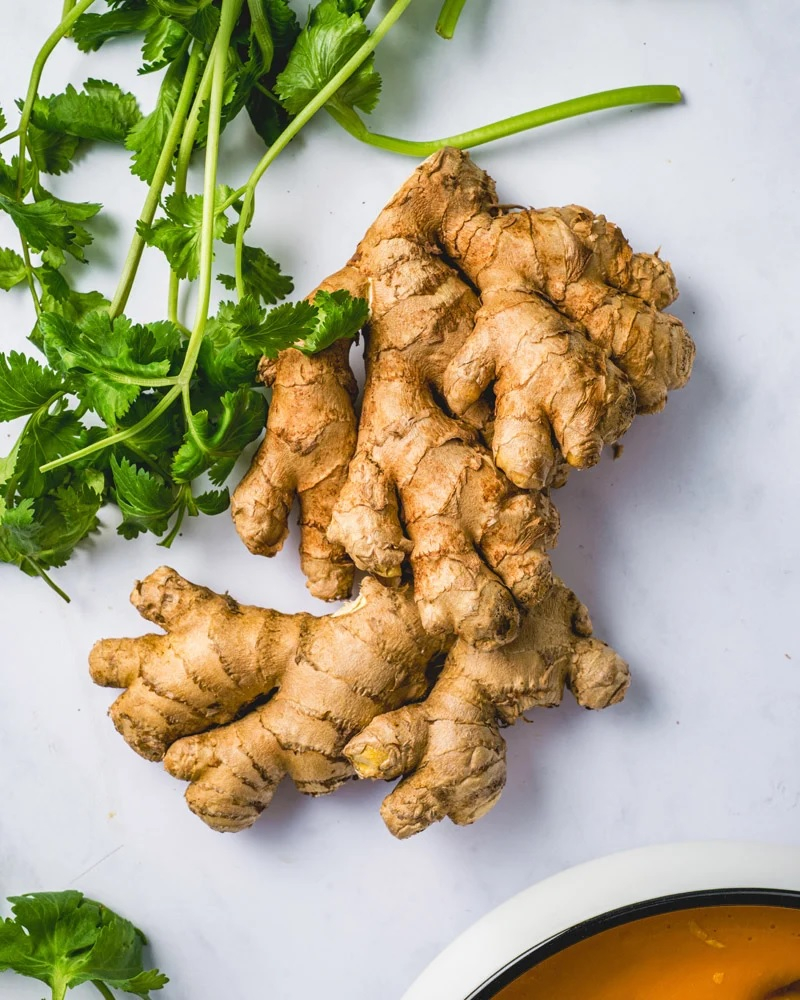
Can treat many forms of nausea, especially morning sickness -
According to studies conducted on people and animals, ginger may help in weight loss. According to a review published in 2019, ginger supplementation lowered body weight, waist-hip ratio, and hip ratio in those who were overweight or obese.
Ginger may also help lower body mass index (BMI) and blood insulin levels, according to a 2016 study of 80 obese women. Obesity is related to higher insulin levels in the blood. For 12 weeks, study participants were given rather large daily amounts of ginger powder - 2 grams. Ginger was also found to have a significantly positive effect on obesity and weight loss in a 2019 literature review of functional foods. Animal studies provide more evidence in favor of ginger's role in obesity prevention. Even when rats and mice were fed high-fat diets, those that drank ginger water or consumed ginger extract saw a reduction in their body weight. However, more researches are required.
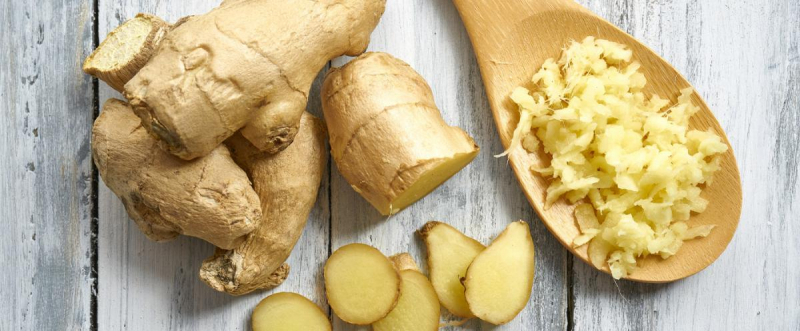
Help with weight loss 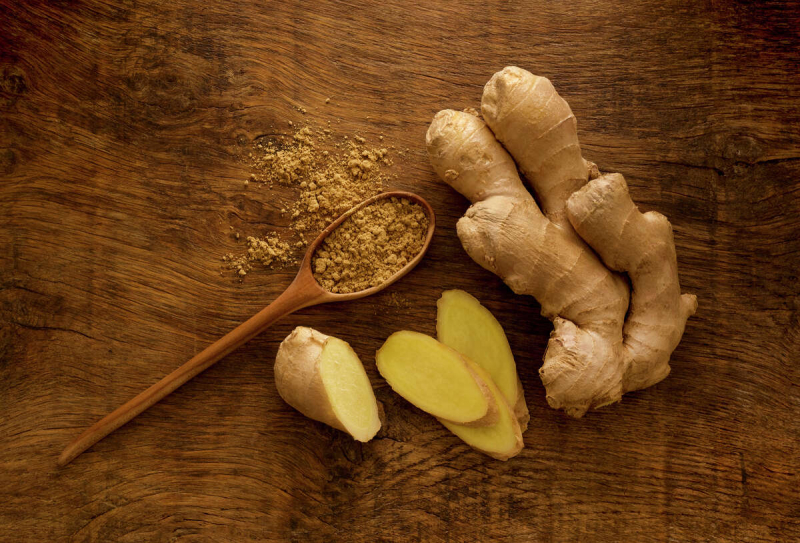
Help with weight loss -
Osteoarthritis (OA) is a common condition. It is characterized by the degeneration of the body's joints, resulting in symptoms such as joint pain and stiffness.
According to one study, participants who took ginger to treat their OA saw significant pain and disability decreases. For 3 to 12 weeks, study participants were given between 500 milligrams (mg) and 1 gram of ginger per day. The majority of them had been diagnosed with knee OA. Only minor side effects were noted, such as a distaste for the flavor of ginger. Despite this, approximately 22% of trial participants dropped out due to the taste of ginger, as well as gastrointestinal distress. Another study from 2011 found that a topical mixture of ginger, mastic, cinnamon, and sesame oil can aid people with OA of the knee reduce pain and stiffness.
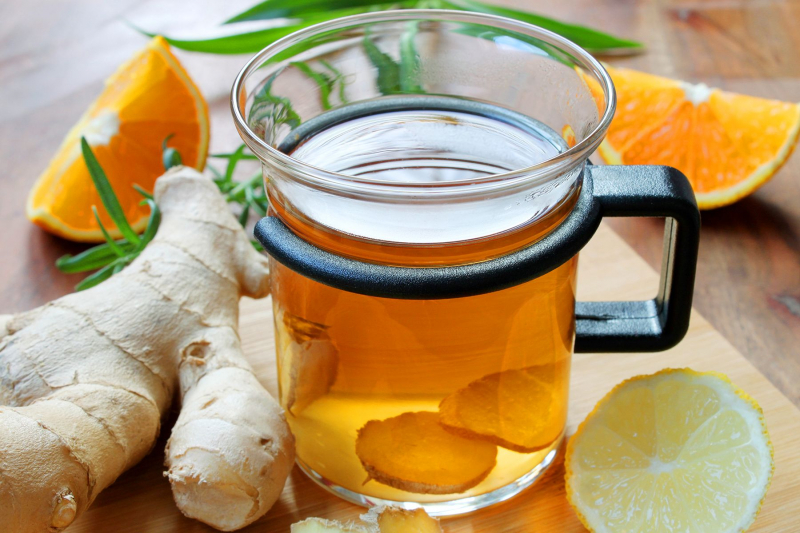
Help with osteoarthritis 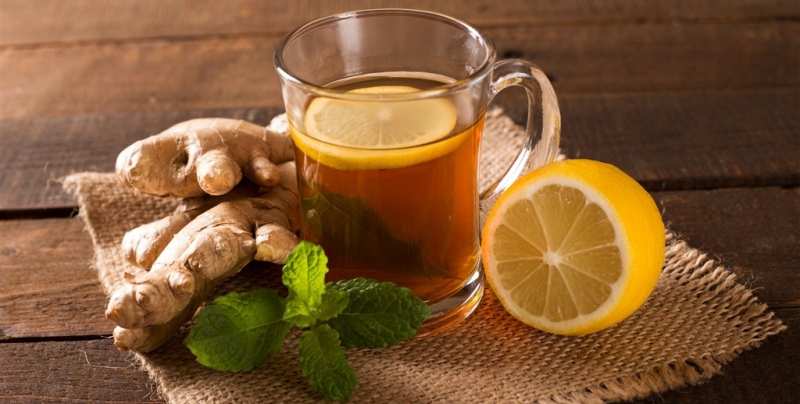
Help with osteoarthritis -
Although research in this area is still in its early stages, ginger may offer potent anti-diabetic benefits. 2 grams of ginger powder per day reduced fasting blood sugar by 12% in a 2015 study of 41 people with type 2 diabetes.It also significantly improved hemoglobin A1c (HbA1c), a long-term blood sugar level marker. Over the course of 12 weeks, HbA1c was lowered by 10%. In addition, the Apolipoprotein B/Apolipoprotein A-I ratio was reduced by 28%, and malondialdehyde (MDA), an oxidative stress byproduct, was reduced by 23%. High MDA levels and a high ApoB/ApoA-I ratio are both substantial risk factors for heart disease.
However, keep in mind that this was only one small research. The results are remarkable, but they must be confirmed in larger research before any conclusions can be drawn. A 2019 literature review also found that ginger dramatically lowered HbA1c in people with type 2 diabetes, which is somewhat encouraging news.
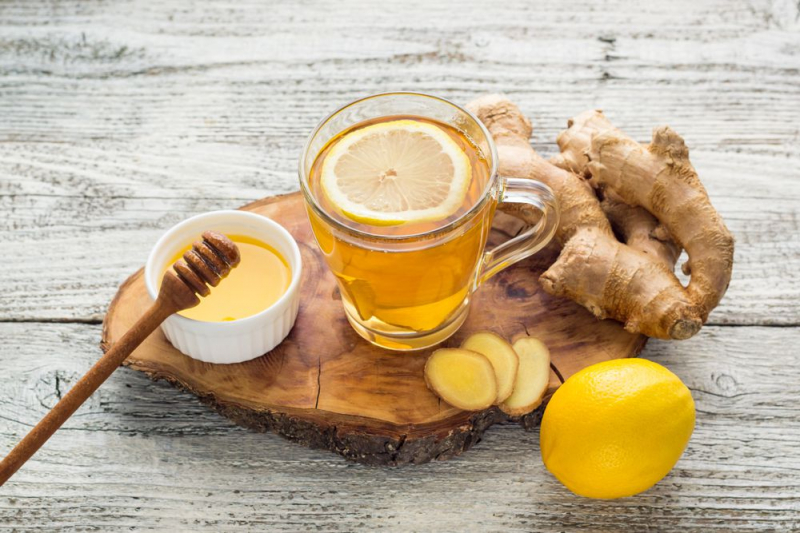
Lower blood sugars and improve heart disease risk factors 
Lower blood sugars and improve heart disease risk factors -
Recurrent pain and discomfort in the upper part of the stomach define chronic indigestion. Indigestion is thought to be caused by a delay in the stomach's emptying. Ginger, interestingly, has been demonstrated to hasten stomach emptying.
This effect has been observed in people who do not experience indigestion. 24 healthy people were given ginger capsules or a placebo in a 2008 study. An hour later, they were all served soup. When ginger was taken instead of a placebo, stomach emptying was dramatically hastened. People who got ginger took 13.1 minutes, whereas those who received the placebo took 26.7 minutes.
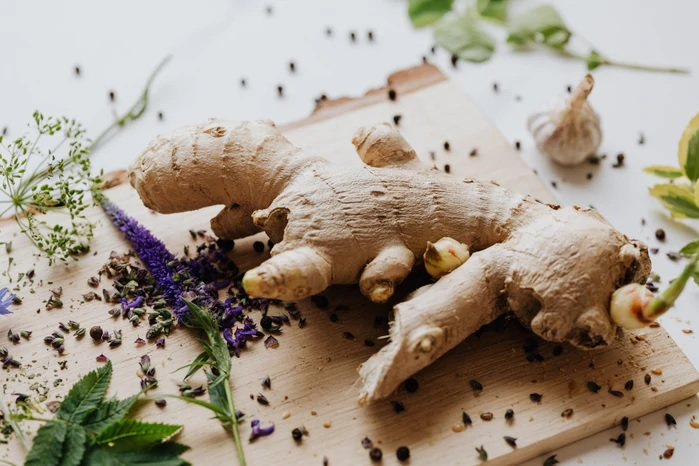
Help treat chronic indigestion 
Help treat chronic indigestion -
The pain experienced throughout the menstrual cycle is referred to as dysmenorrhea. Pain relief, particularly menstrual pain, is one of the traditional uses of ginger.
In a 2009 trial, 150 women were given an option of taking ginger or a nonsteroidal anti-inflammatory drug (NSAID) for the first three days of their period. Four daily doses of ginger powder (250 mg), mefenamic acid (250 mg), or ibuprofen were given to the three groups (400 mg). Ginger was as good as the two NSAIDs at reducing pain. Recent research has also found that ginger is more effective than a placebo and is on the level with medications like mefenamic acid and acetaminophen/caffeine/ibuprofen (Novafen). While these findings are promising, more high-quality studies are still required.
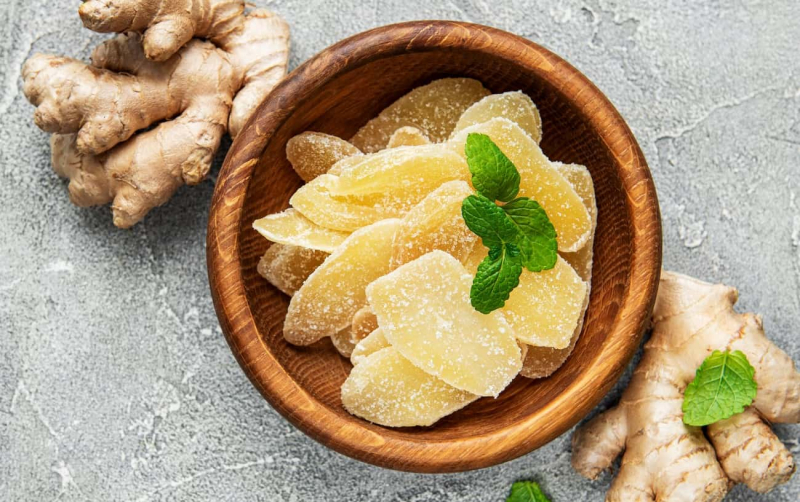
Reduce menstrual pain 
Reduce menstrual pain -
LDL (bad) cholesterol levels above a certain level are associated with an increased risk of heart disease. Foods you consume might have a big impact on your LDL levels.
The 30 people who got 5 grams of ginger-pasted powder every day for three months had their LDL (bad) cholesterol levels drop by 17.4%, according to a 2018 study of 60 people with hyperlipidemia. While the reduction in LDL is significant, it's worth noting that the participants in the research were given high dosages of ginger. The dosages used in the hyperlipidemia study are five to ten times greater. Most people are unlikely to be able to sustain a 5-gram dosage for long enough to notice effects. People who took 3 grams of ginger powder (in capsule form) every day observed substantial decreases in major cholesterol markers in an older study from 2008. Over the course of 45 days, their LDL (bad) cholesterol levels decreased by 10%.
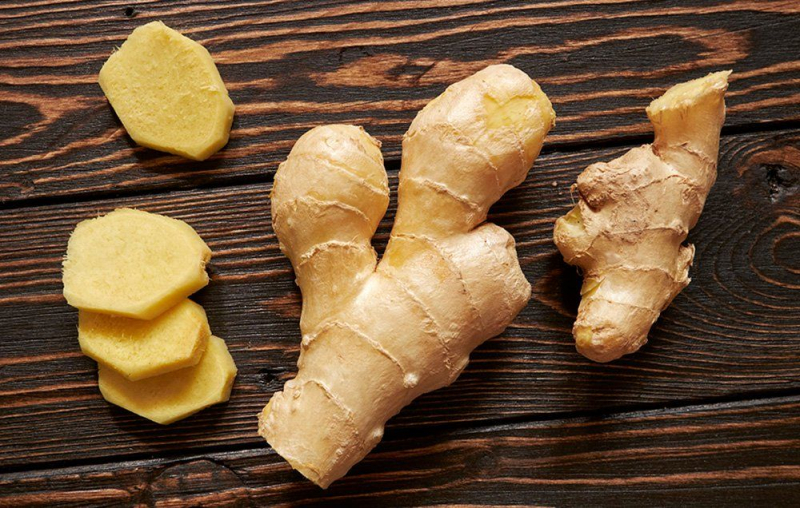
Help lower cholesterol levels 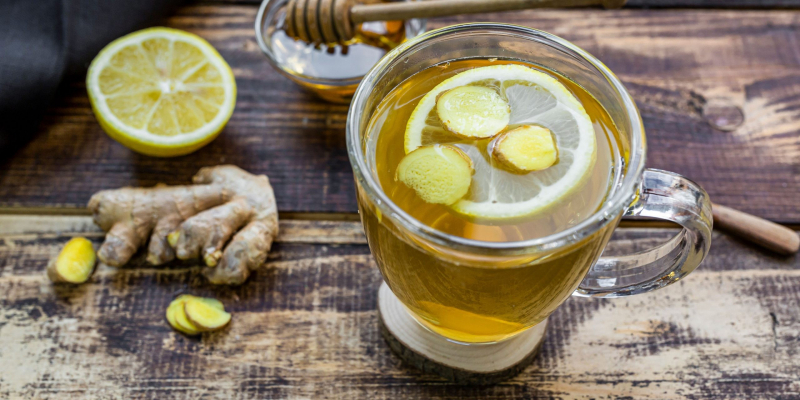
Help lower cholesterol levels -
Ginger has been studied as an alternate treatment for a variety of cancers. For cancer treatment, ginger has been known to be ten thousand times more effective than chemotherapy. It's a natural cancer fighter and anti-oxidant.
The version known as [6]-gingerol is thought to be particularly potent. 2 grams of ginger extract per day decreased pro-inflammatory signaling molecules in the colon in a 28-day study of people at normal risk for colorectal cancer. Ginger may be useful against other gastrointestinal malignancies such as pancreatic cancer and liver cancer, according to some research, however, it is limited. It may also be useful in the treatment of breast cancer and ovarian cancer. However, more research is needed.
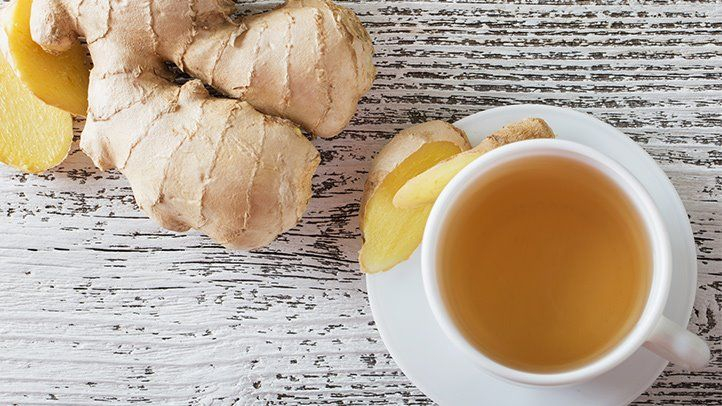
Contain a substance that may help prevent cancer 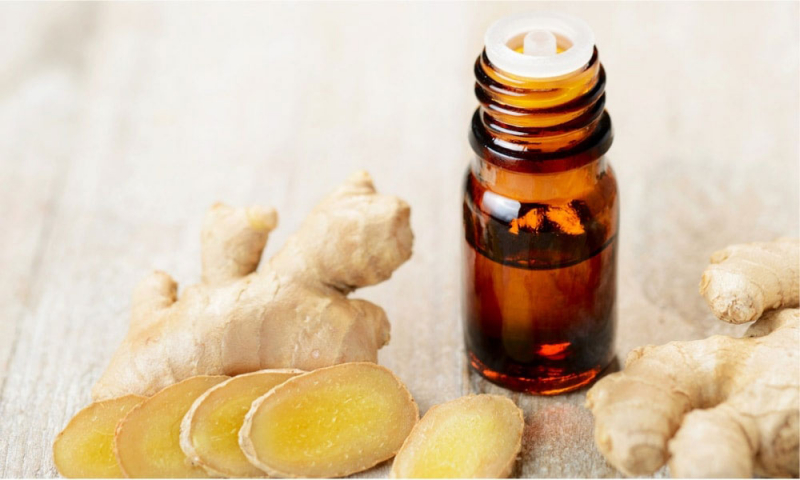
Contain a substance that may help prevent cancer -
Chronic inflammation and oxidative stress can speed up the aging process. They're thought to be one of the main causes of Alzheimer's disease and cognitive impairment as people become older.
According to certain animal studies, the antioxidants and bioactive compounds in ginger help reduce inflammatory responses in the brain. Anti-inflammatory, antihyperglycemic, antiarthritic, antiemetic, and neuroprotective properties are among ginger's key pharmacological properties. Recent research has shown that ginger improves cognitive function in people with a variety of cognitive disorders as well as healthy people. Daily dosages of ginger extract were demonstrated to increase response speed and working memory in a 2012 research on healthy middle-aged women. Furthermore, numerous animal studies have shown that ginger can help protect against age-related decline in brain function.
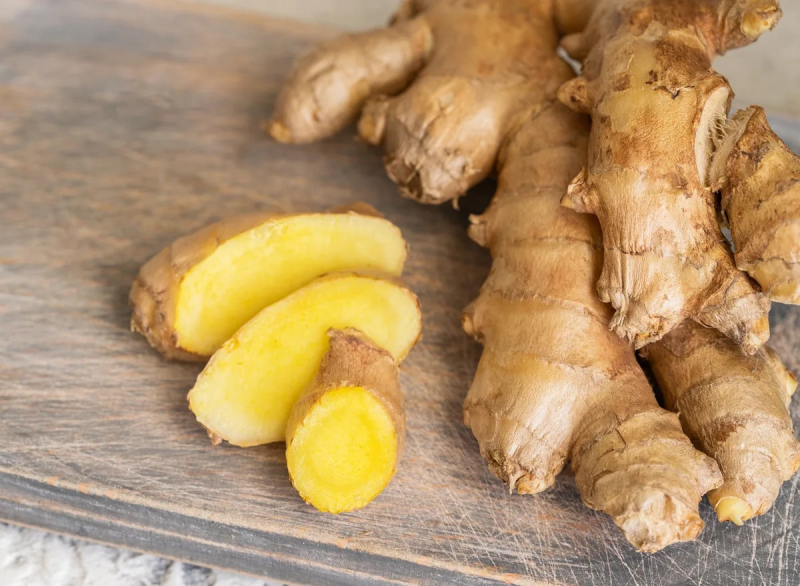
Improve brain function and protect against Alzheimer’s disease 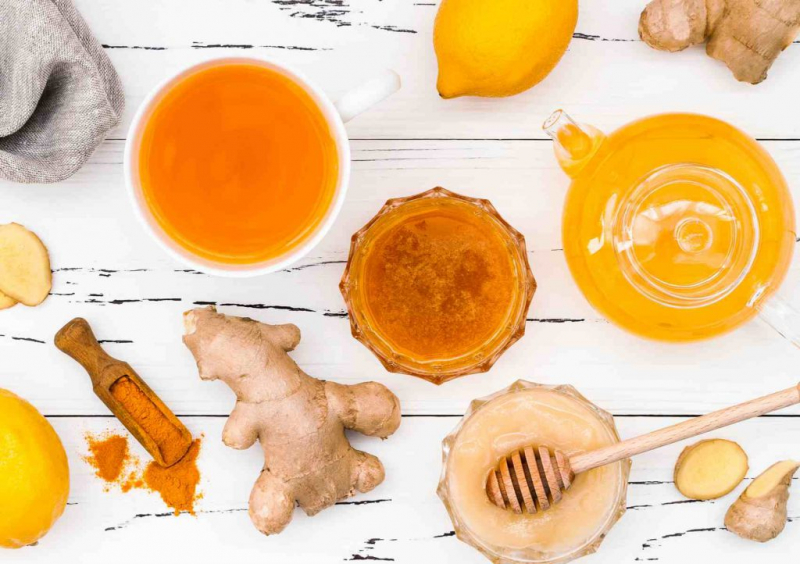
Improve brain function and protect against Alzheimer’s disease































